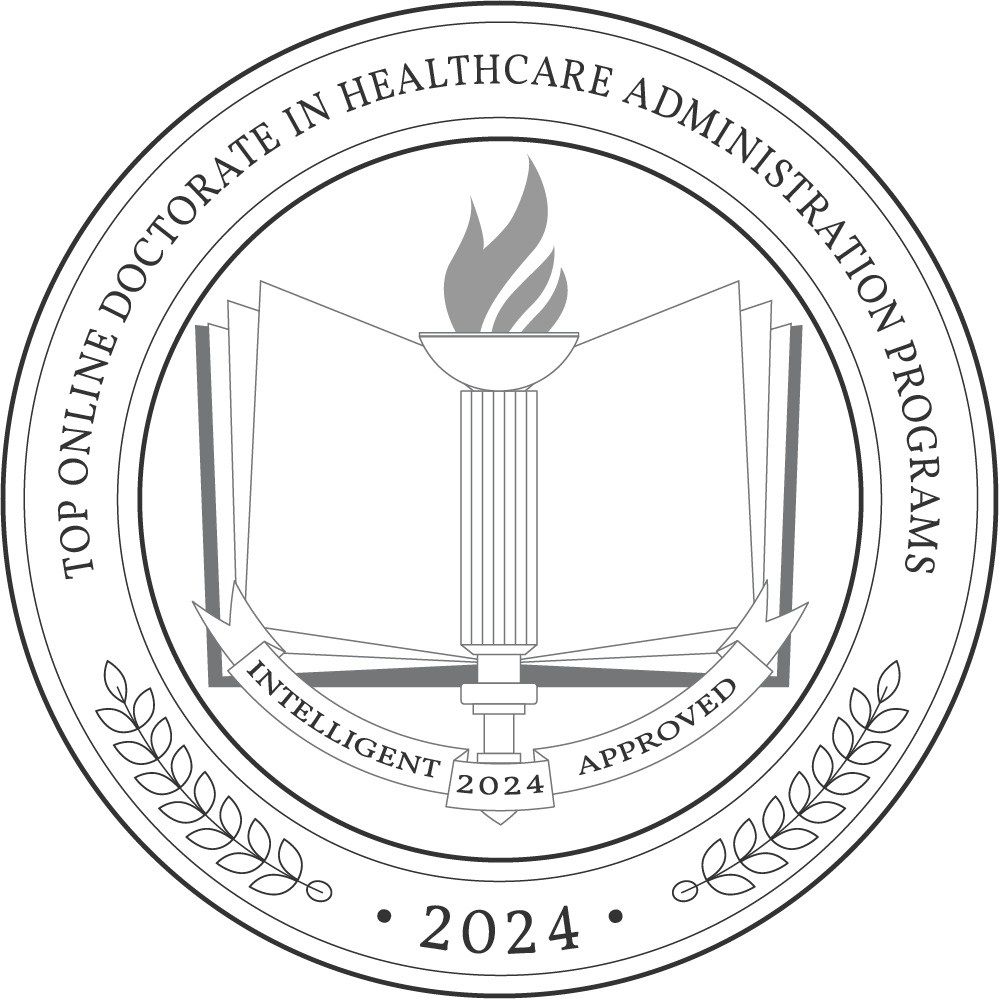Why This Matters
-
21% OF MEDICAL SERVICES MANAGER JOBS REQUIRE GRADUATE SCHOOL
According to O*NET, 21% of medical services manager positions require a graduate degree.
-
144,700 MORE MEDICAL SERVICES MANAGERS NEEDED BY 2032
According to the Bureau of Labor Statistics (BLS), there will be a 28% increase in the demand for medical and health services managers over the next decade.
-
POTENTIAL TO EARN OVER $200,000 PER YEAR
The average salary for medical and health services managers is $104,830 per year, and the top 10% of workers in this field make more than $209,990. A doctorate will help you reach the high end of your salary potential.
Our Research
This list features some of the best online doctorate in healthcare administration degree programs at top colleges nationwide. Each school featured is a nonprofit, accredited institution — either public or private — with a high standard of academic quality for post-secondary education.
We evaluated each school’s program on admission, retention, and graduation rates as well as tuition costs, faculty, reputation, and the resources provided for online students. Then, we calculated the Intelligent Score on a scale of 0 to 100. Read more about our ranking methodology.
Next, we compared this comprehensive list of online doctorate in healthcare administration degree programs to a list of aggregated college rankings from reputable publications like U.S. News & World Report, among others, to simplify a student’s college search. We pored through these rankings so students don’t have to.
- 59 hours to write this article
- 123 universities and colleges we assessed
- 123 education programs we compared
The Top 50 Online Doctorate in Healthcare Administration Programs

Discover More Options
What You Should Know About This Degree
As you prepare yourself for a rewarding career in the healthcare field, you might be considering several options when it comes to your degree. It’s important to keep in mind that a doctorate in healthcare administration is focused on the business side of healthcare while some similar degrees, such as a doctorate in public health, focus on health sciences and research.
Only apply to schools approved by a DOE-recognized accrediting organization, such as the New England Commission of Higher Education (NECHE) or Northwest Commission on Colleges and Universities (NWCCU). If your school isn’t accredited, you may be unable to access financial aid or transfer credits to another institution if needed.
Upon graduation, you might consider several career options. While healthcare manager is the most common role among graduates, you might also consider work as a community service manager or social service manager. Healthcare manager positions don’t generally require additional training or licensure beyond your college degree, but positions in social or community work may require state licensing.
What’s Next?
Here are some questions to ask when researching online doctorate in healthcare administration programs:
- Am I eligible for this program? While every program is different, most require students to have a minimum 3.0 GPA and an undergraduate degree in a similar field, as well as some work experience in the healthcare industry.
- How long does it take to complete this online degree? The amount of time it takes you to complete your degree program depends on whether you study part-time or full-time. While full-time students can usually complete their program in two to three years, part-time students might take up to seven years.
Make sure to keep track of important program details while you research your options for this degree. Take note of the programs you’re most interested in and carefully review information about application deadlines, course prerequisites, and procedures for applying.
If you require financial aid, be sure to complete your FAFSA and submit applications for scholarships and grants on time and according to guidelines.